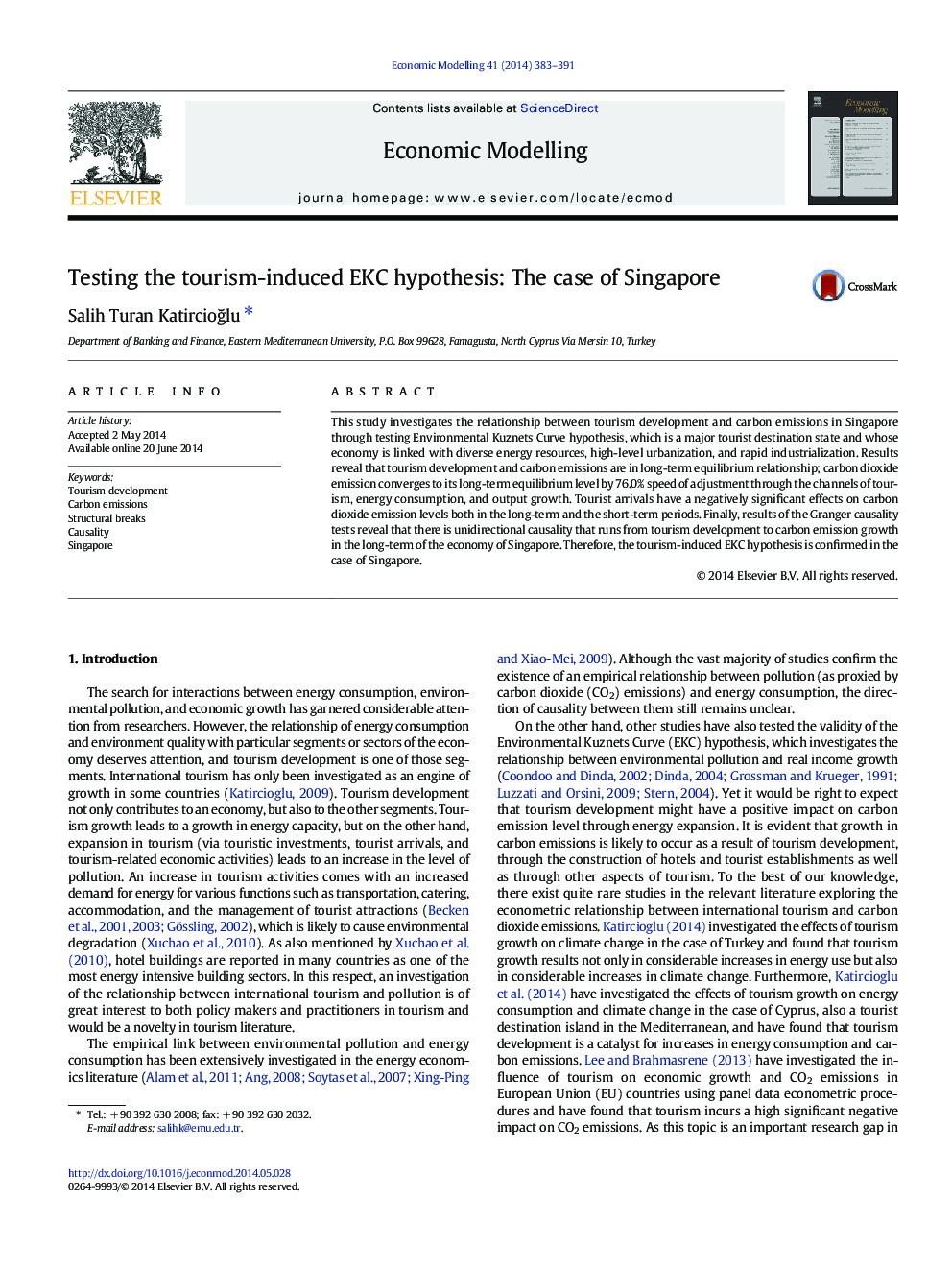| کد مقاله | کد نشریه | سال انتشار | مقاله انگلیسی | نسخه تمام متن |
|---|---|---|---|---|
| 5054150 | 1476527 | 2014 | 9 صفحه PDF | دانلود رایگان |
عنوان انگلیسی مقاله ISI
Testing the tourism-induced EKC hypothesis: The case of Singapore
دانلود مقاله + سفارش ترجمه
دانلود مقاله ISI انگلیسی
رایگان برای ایرانیان
کلمات کلیدی
موضوعات مرتبط
علوم انسانی و اجتماعی
اقتصاد، اقتصادسنجی و امور مالی
اقتصاد و اقتصادسنجی
پیش نمایش صفحه اول مقاله

چکیده انگلیسی
This study investigates the relationship between tourism development and carbon emissions in Singapore through testing Environmental Kuznets Curve hypothesis, which is a major tourist destination state and whose economy is linked with diverse energy resources, high-level urbanization, and rapid industrialization. Results reveal that tourism development and carbon emissions are in long-term equilibrium relationship; carbon dioxide emission converges to its long-term equilibrium level by 76.0% speed of adjustment through the channels of tourism, energy consumption, and output growth. Tourist arrivals have a negatively significant effects on carbon dioxide emission levels both in the long-term and the short-term periods. Finally, results of the Granger causality tests reveal that there is unidirectional causality that runs from tourism development to carbon emission growth in the long-term of the economy of Singapore. Therefore, the tourism-induced EKC hypothesis is confirmed in the case of Singapore.
ناشر
Database: Elsevier - ScienceDirect (ساینس دایرکت)
Journal: Economic Modelling - Volume 41, August 2014, Pages 383-391
Journal: Economic Modelling - Volume 41, August 2014, Pages 383-391
نویسندگان
Salih Turan KatircioÄlu,